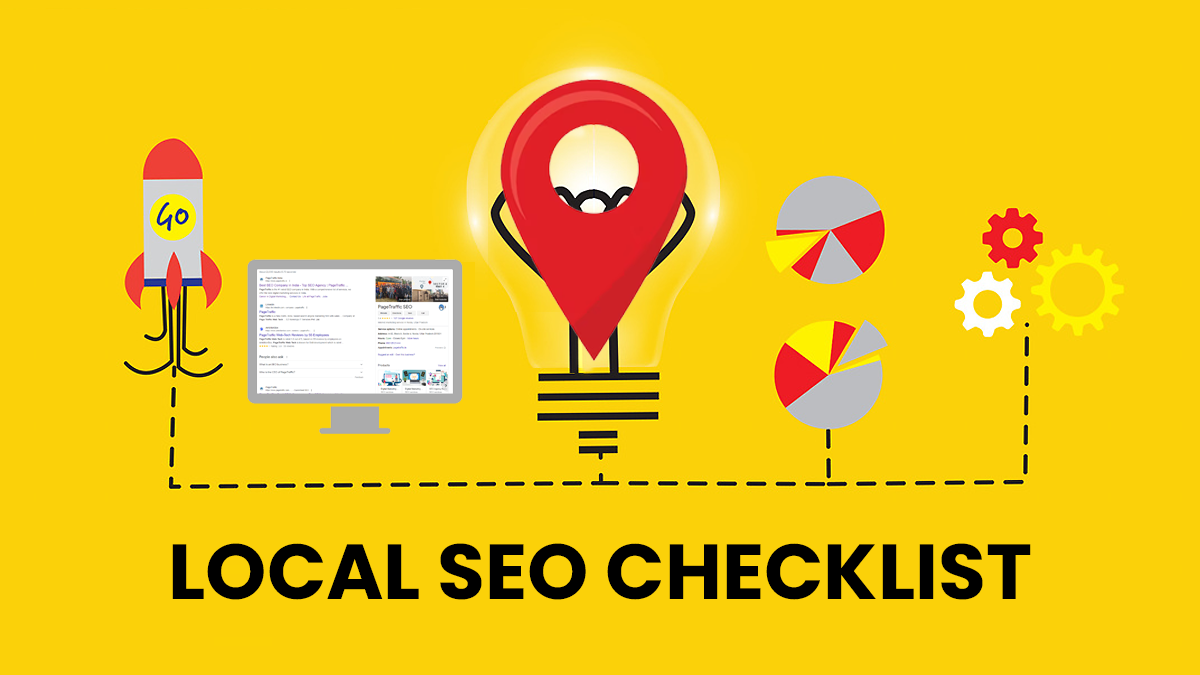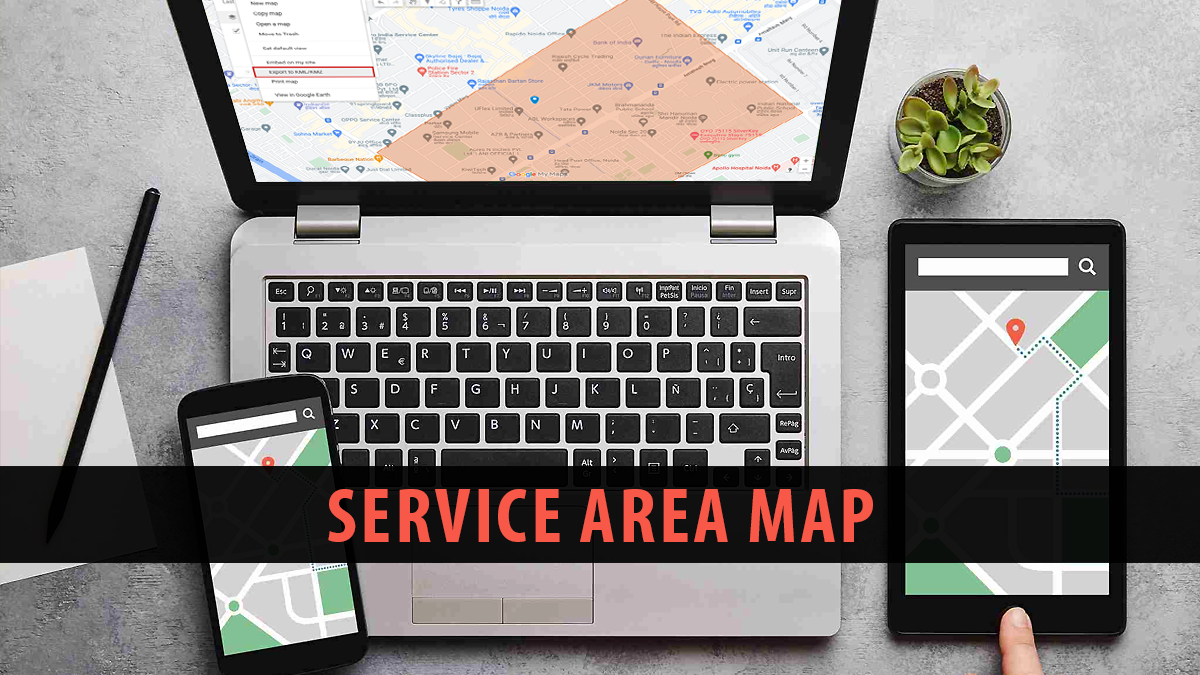There are millions upon millions of websites on the internet. Small business owners trying to promote their local stores may find it intimidating to compete in such a vast global marketplace. But don’t panic. Your business can stand out and connect with customers in your area. It’s done with local SEO. Even when competing with large brands and national businesses that have a significant online presence, local SEO assists local businesses in being found in search results. Although local SEO is not new in 2025, its importance continues to rise. Every day, more than a third of people use the internet to look for local businesses, and nearly half of all Google searches are for local information. Do you want to perform local seo that could lead potential customers to your website or through your doors? We share a twelve-point local SEO checklist for a successful local optimization.
What is Local SEO?
Local SEO (Search Engine Optimization) is a digital marketing strategy that helps to improve the visibility and ranking of a business in local search results, such as Google Maps and Google My Business. It is a method of search engine optimization (SEO) that increases your business’s visibility in Google’s local search results. It optimizes a brand’s online presence so neighborhood clients can find the brand through organic local search.
The goal of local SEO is to make it easier for local customers to find a business when searching for products or services online. By improving a business’s local search rankings, it can attract more website traffic, foot traffic, phone calls, and leads, ultimately leading to increased revenue and growth.
Local SEO packages can provide local businesses with a comprehensive and tailored approach to improving their online visibility and search rankings in their target location.
What is the Difference Between National SEO and Local SEO?
Companies like car insurance and online software providers, which provide services to anyone, want people all over the country or even the world to find them through organic search.
However, owners of local service-based businesses such as brick-and-mortar businesses do not require global customers to discover their business. All they require is to make sure nearby searchers locate their business. That is made possible by local SEO.
Also, Read: Local SEO vs National SEO: Which one to Choose?
Why Local SEO is Important in 2025?
Businesses can reach a geo-specific target audience by improving their internet visibility through local SEO. Although marketers and webmasters place a greater emphasis on location-based keywords, ranking factors, and customer testimonials, the fundamental principles of traditional SEO still apply. It is all too easy to tune out when you hear the word “SEO,” but you could be missing out on significant ranking opportunities. SEO has the potential to yield significant benefits for businesses of all sizes.
A well-executed local SEO strategy can be the key to connecting with more potential customers than ever before as a form of inbound marketing. Ranking in Google alone will not be enough in 2025 due to the growing dominance of SERP features like image carousels, maps, lists, Knowledge Panels, dropdowns for “People also ask” and various forms of local business cards. These featured snippets must also be won by your business. You need local SEO to achieve that.
12 Point Local SEO Checklist to Improve Your Local Business
Setup Google My Business Profile
Create a Google My Business (GMB) account to begin implementing your local SEO strategy. Your local SEO can benefit significantly from a well-crafted GMB profile. It helps Google learn where your business is located, and it can also rank well on Google on its own.
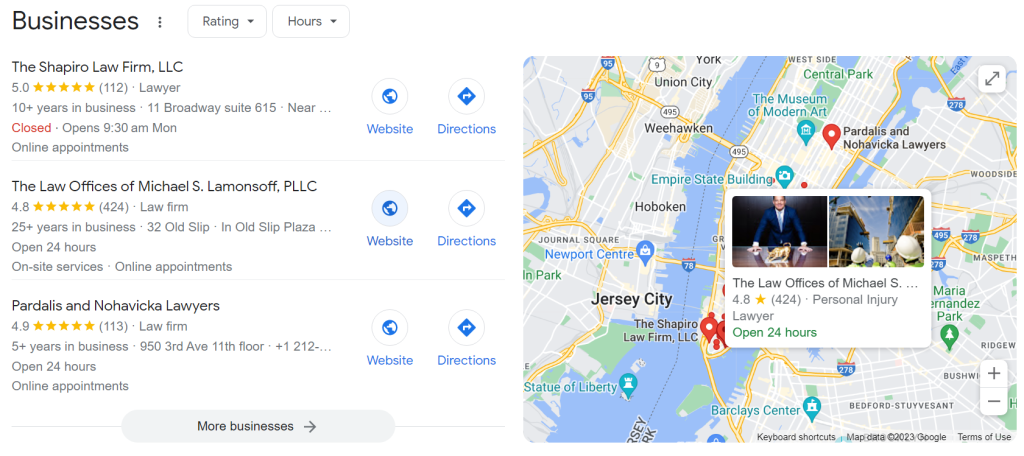
Also Read: How to Track Calls from GMB (Google Business Profile) on Your Website
Tip: Your local ranking on Google Search and Google Maps can be improved by verifying your business’s location in GMB.
Optimize Your Google Business Profile
Add any extra data about your neighborhood business to your GMB profile. This will inform potential customers about your services and help Google fully comprehend what your company is all about. Furthermore, it’ll likewise make your page bound to rank and stick out. A well-designed GMB profile looks like this:
Add any extra data about your neighborhood business to your GMB profile. This will inform potential customers about your services and help Google fully comprehend what your company is all about. Furthermore, it’ll likewise make your page bound to rank and stick out. A well-designed GMB profile looks like this:
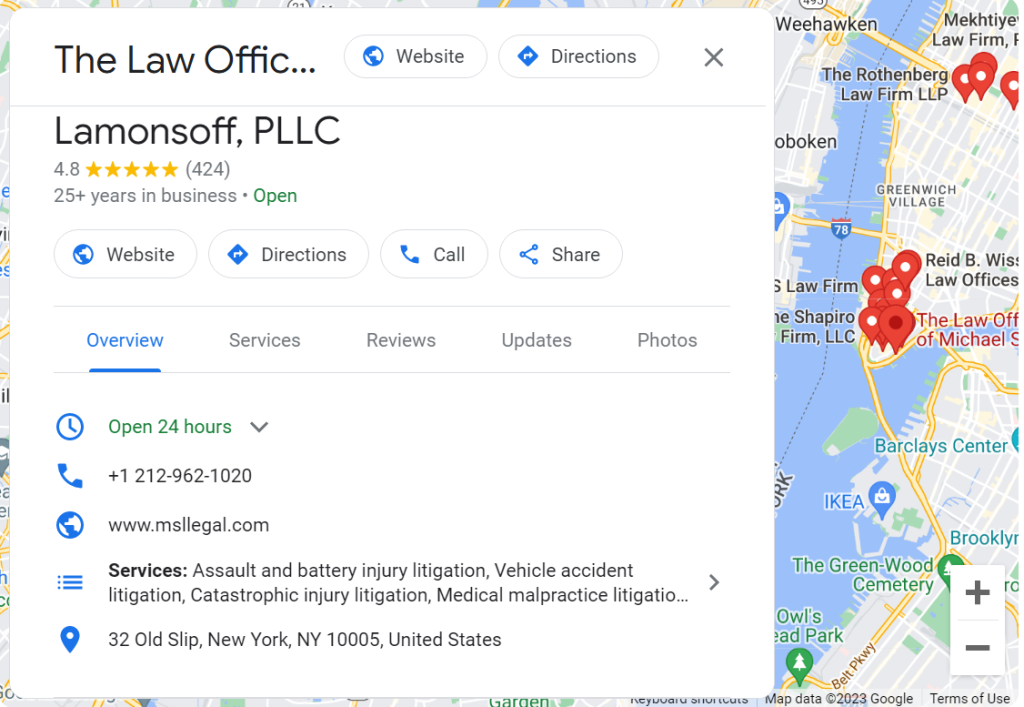
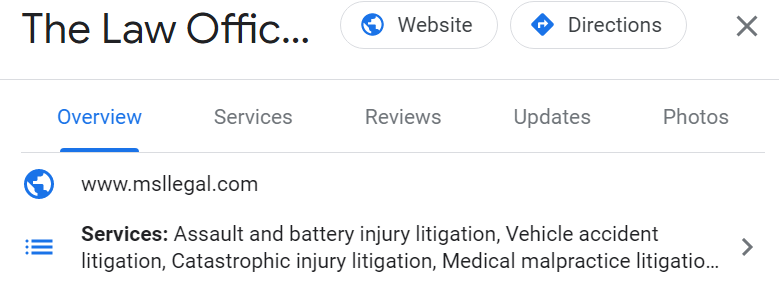
- A photo of your venue taken from the outside, so people can easily find it from the street
- Multiple inside shots so that people can get a sense of how the place looks inside (this is especially important for clubs, cafes, restaurants, and bars)
- Images of your products. After all, your food is what makes your restaurant or bakery successful
- Photos of the team/employees. The personal side of your business can be shown by including pictures of your employees working. This is especially true for professional services (such as accounting firms and advertising agencies)
Unsure of the kind of pictures that should be included in your GMB profile? Take a look at the photo guidelines provided by Google.

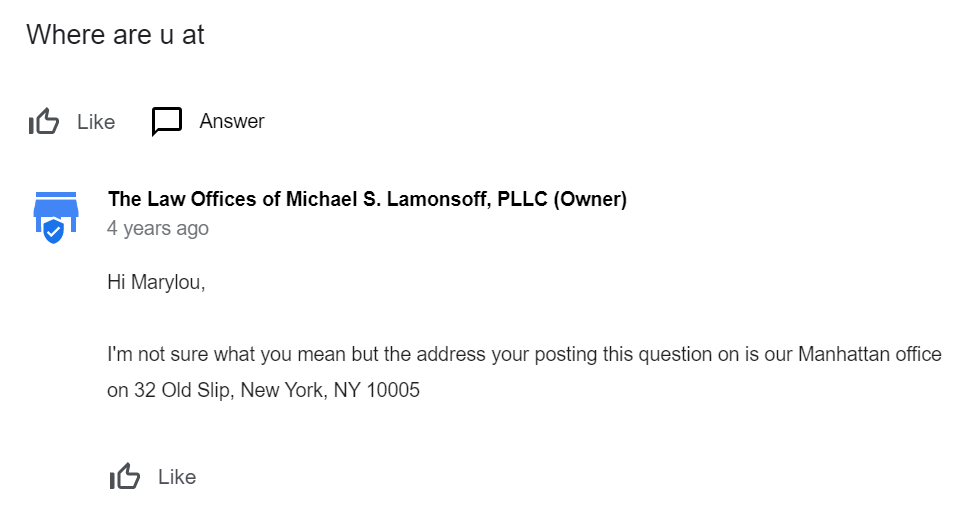
A GMB profile is not set up once and done. Check your Google listing to see if your business’s name, phone number, or service offerings have changed. Indeed, even the littlest subtleties that don’t get refreshed, like shutting 30 minutes sooner, can adversely affect your business, audits, notoriety, and rankings. Additionally, check your profile on a regular basis to ensure that there are no incorrect details because anyone can suggest changes to your business listing and Google may accept them.
Publish Posts on Google My Business Profile
Google My Business can also serve as your company’s social media profile. Updates, promotions, offers, events, news, and brief informative articles can be posted. These posts can boost your Google search ranking, and when someone opens your Google Maps profile, the most recent ones will appear. Some ideas are as follows:

Encourage Customer Reviews
Customer reviews do influence rankings. Your chances of ranking higher on Google increase with the quality of your reviews. Don’t ask for reviews in exchange for discounts or coupons, and don’t set up a review station at your location. This doesn’t mean you should try to cheat the process. This could and will result in a penalty from Google. You could instead try the following:
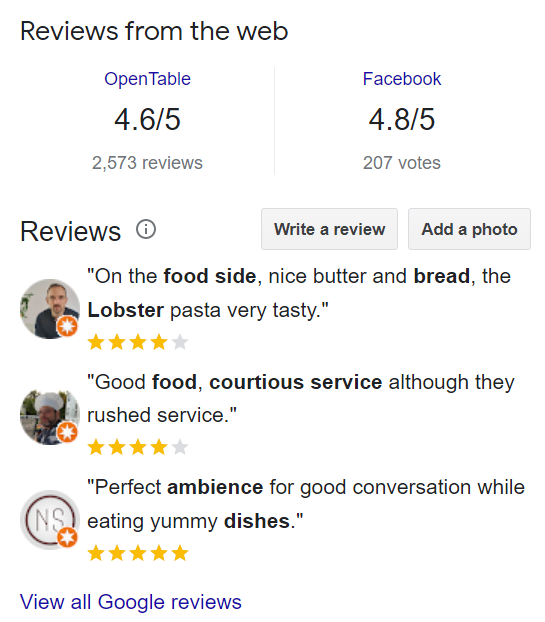
Build Citations in Local Directories
Citations are mentions of your NAP (name, address, and phone number) in business directories, websites, and social media (such as Facebook, Yelp, and the Yellow Pages). They also make it easier for Google to verify the address you put in your GMB profile. Citations can have a significant impact on your Google rankings. They can also serve as backlinks because they frequently include a link to your website. To build citations correctly, you must carry out the following:
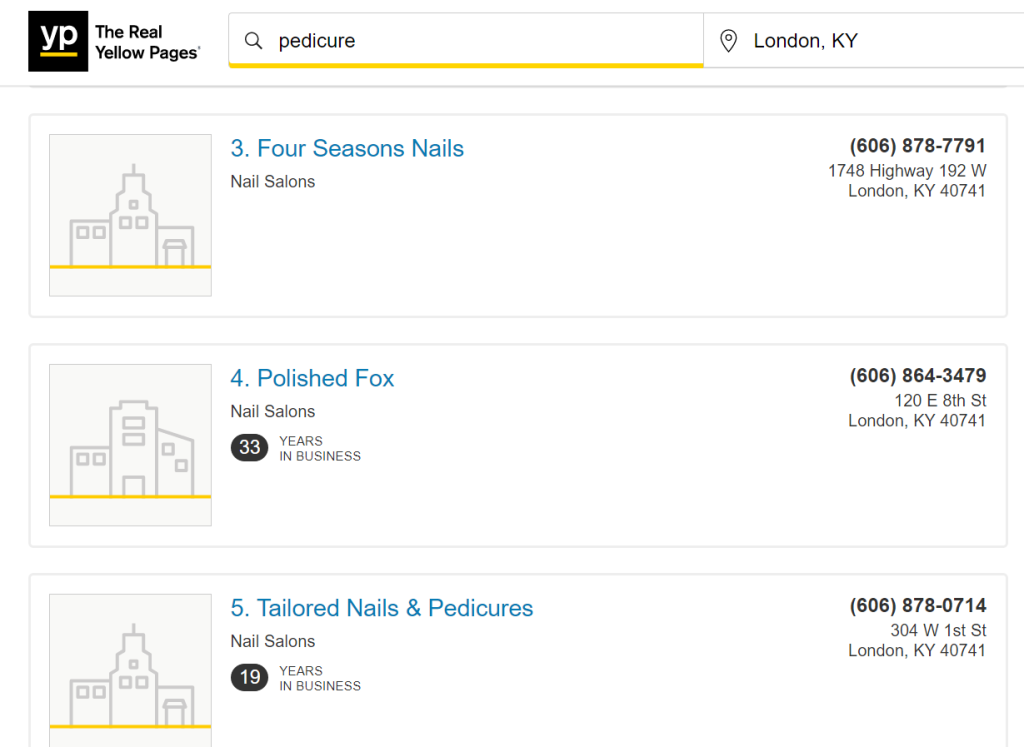
Tip: Maintain consistent NAP information across the internet. When citing your company’s data, always adhere to the same exact structure and spelling. Google as well as potential customers will find this less confusing.
Leverage Social Media
Use social media to boost your online presence even though it has no direct effect on your search ranking. You should actively maintain your profiles on a number of social media platforms. Because popular social media websites have a high domain authority, these profiles can serve as very credible NAP citations. As a neighborhood business, you ought to essentially have a social profile on social media platforms like Facebook, Instagram, Twitter and LinkedIn. There are a number of ways it can help your business’s local search engine optimization. First, you can include your business address on social media sites like Facebook and Instagram, which can almost look like their own little listing sites.
Furthermore, social media platforms regularly appear in local search results for your business name, so by having profiles across various social media platforms, you can give your business more reach on search results pages when an individual looks for your business. It’s also important to keep in mind that, while search engines are still the first place people look for businesses, social media is becoming an increasingly popular option. Therefore, if you invest in leveraging social media to its full extent, you can improve your chances of being discovered by potential customers across a variety of channels.
Do Research on Local Keywords
Now, let’s talk about your website’s local SEO. Conducting keyword research for your local SEO is the first step here. The keyword research here, however, is different from local SEO, as you primarily need to rank on service keywords. Let’s say you run a New York City-based accounting firm. You should aim to rank for keywords like [service type] + [location], such as “vegan restaurant new york,” rather than educational keywords like “how to do accounting.” Here is how you can conduct keyword research for local SEO:
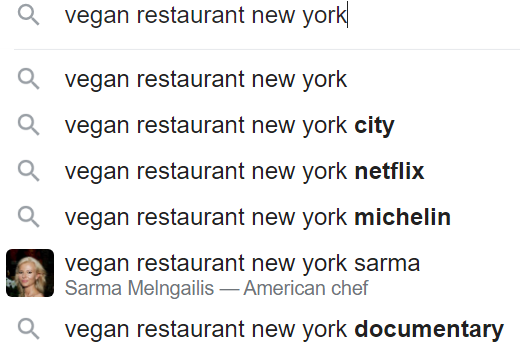
In order to keep track of your research, create a Google Sheet.
Also, Read: 8 Best Local SEO Tools to Make Your Business Rank Higher in 2025
Perform On-page SEO Optimization
After you’ve gathered your keywords, it’s time to implement SEO best practices on your website:
- For instance, it is recommended that you include a “Services” dropdown in your website’s navigation bar to link all of your services. A “Locations” dropdown lets you link to different locations if you have them. The majority of your pages will be linked together if you include your locations and services in the footer.
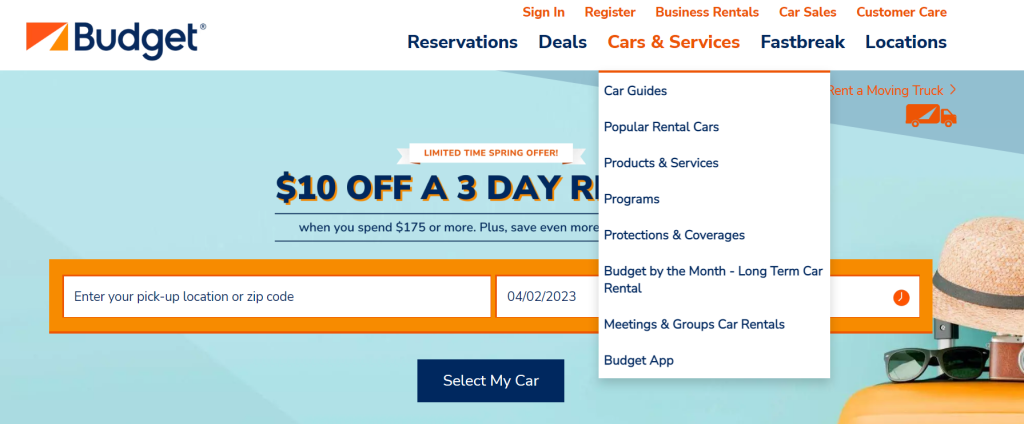
Create Landing Pages
Your website should have the following pages in order to rank well on Google:
- Additionally, a contact capture should be included on each service page. This could be a small contact form or a simple “Contact Us” button. Visitors to your website will leave if they are unable to easily get in touch with you.

Build Local Backlinks
Getting other websites to link to yours tells Google that your website is a reliable resource, which improves Google’s ranking of your pages. For local SEO, here are some pointers on how to create backlinks:
Create a Fast and Mobile-Friendly Site
The quality of your website’s design has a big effect on your search engine optimization (SEO). Google performs mobile-first indexing. Therefore, your rankings will suffer greatly if your website cannot be accessed on mobile devices. To determine whether your website is mobile-friendly, use Google’s own tool. Speed is another major factor. Most visitors will simply leave your site and visit your rival’s if it takes 30 seconds to load. Therefore, here are some solutions to both problems:
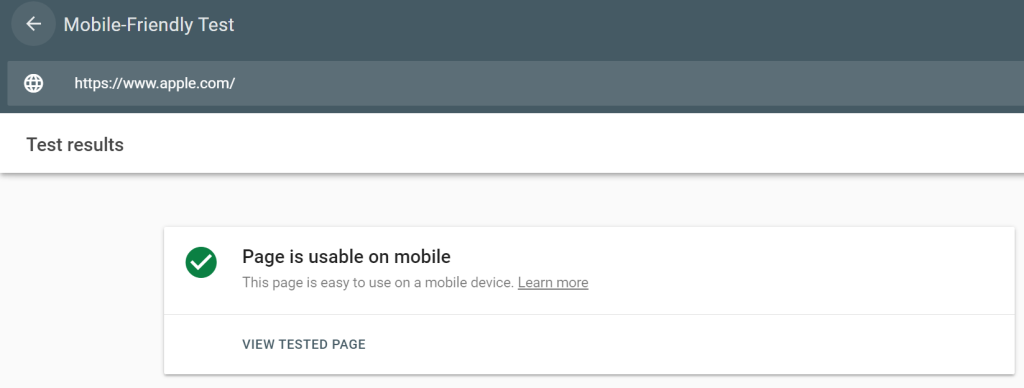
Compress your HTML, CSS, and JS files so they load faster.
Use Local Ads to Drive Traffic
Advertise locally. We know from personal experience that running local ads can help many local businesses make a profit. How can you accomplish this?
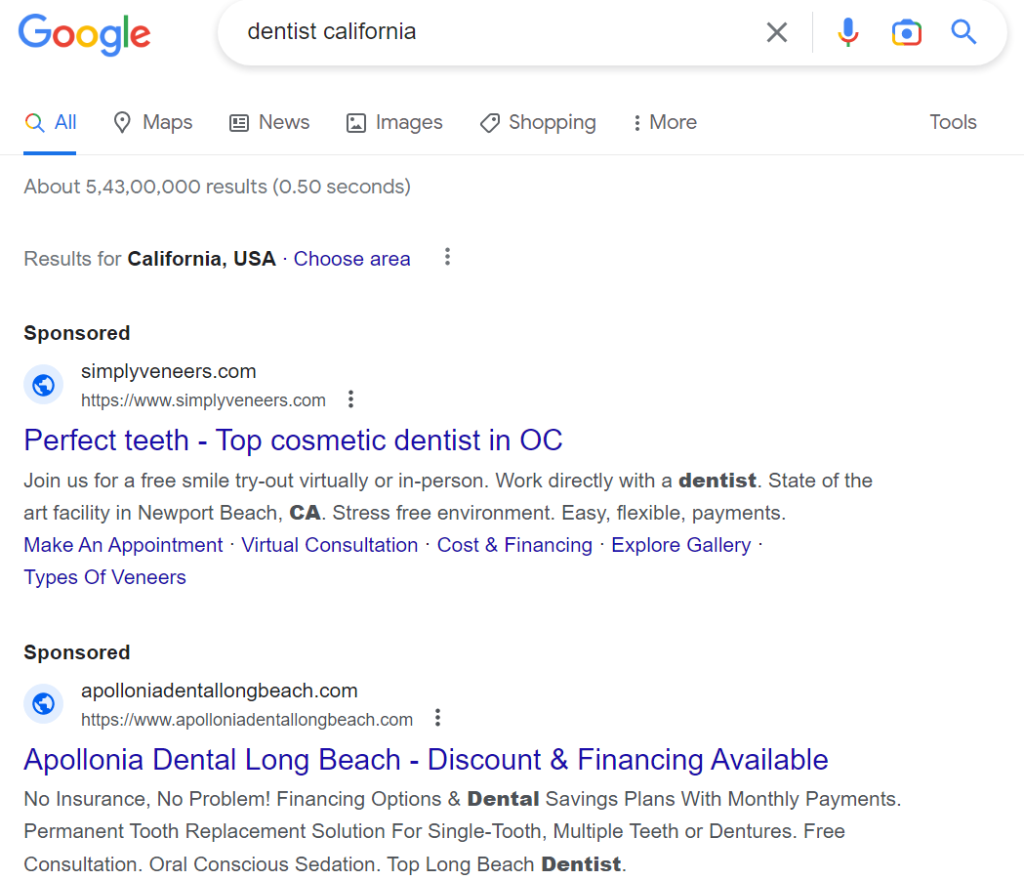
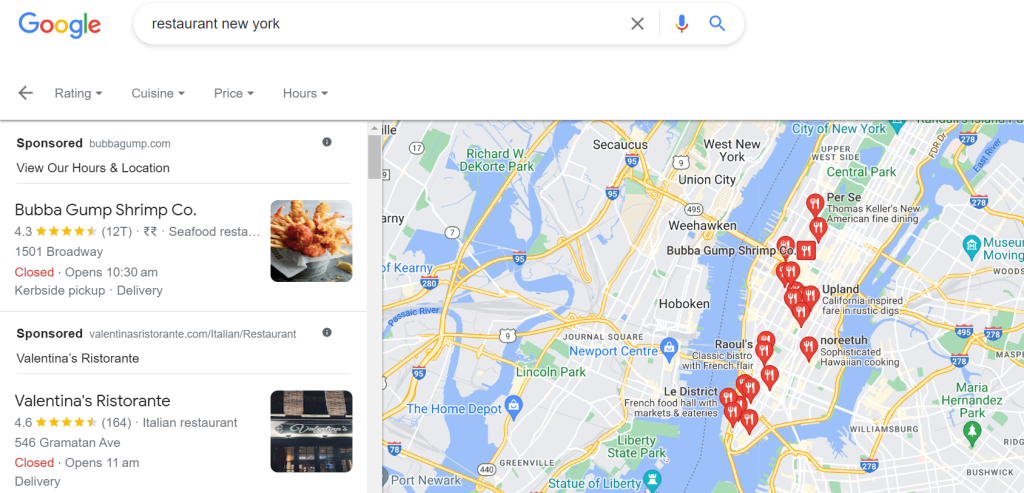
Other Important Points to Consider for Local SEO
Choose the Right Business Category
Choosing the most relevant category for your business is an important step in doing local seo. In terms of SEO, selecting this category is equivalent to selecting the primary target keyword for your website that best describes your product or service. In order to label your business, there are many categories available. You should pick a category that is relevant to your company as well as a popular search term. For instance, you might think of using either “Fishing Camp” or “Summer Camp” for a summer fishing camp. But if you check these keywords in a keyword tool, you will find that “Summer Camp” has more searches than “Fishing Camp”. Potential customers who are looking for you online will appreciate the details you add to your profile because they might be able to find answers to some of their questions or concerns about choosing your company.
Get Backlinks that Includes Your Location
Backlinks, or links from other websites to yours, are absolutely necessary for your website’s overall visibility in search results. As previously stated this is due to the fact that Google views them as “votes” for your website and gives higher positions in search results to websites with more links as long as the links are from relevant, high-quality websites. Backlinks, as you might expect, play a huge role in local SEO as well. You should occasionally encourage anyone who is willing to give you a backlink to include the location of your business in the backlink in order to improve your performance in local search results. Search engines will notice this because it emphasizes your business’s location.
For example if you own a bike shop in Brooklyn, this would merely entail attempting to establish connections to “bike shop in Brooklyn” rather than “bike shop.” We say “occasionally” because you don’t want to overdo it. Too many location keywords in link building can look like spam, give search engine algorithms red flags, and get you penalized. Last but not least, it’s a good idea to get backlinks from nearby businesses if at all possible. This may indicate to search engines that your website is relevant to a specific region.
Create Quality Content Specific to Your Area
In search results, websites with in-depth, useful articles on topics that people are actually interested in, tend to do well. There are two main reasons for this: First, they are frequently keyword-rich, increasing the likelihood that your content will match a variety of search queries. Second, if they are particularly useful resources, owners of other websites will establish “backlinks” to them, which, as previously mentioned, results in higher placements in search results.
Local SEO follows the same guidelines, so if you write high-quality blog posts about your business niche that include your location, you might do well in local search results. Again using our bike shop example, blogging about good cycling routes in the region where the shop does business might be one way to gain some traction in local search results for bike-related services. This makes it more likely that cyclists in your area will find your blog post and learn not only about a great new cycle route but also that your company sells and services bicycles.
Get Local News Coverage
It is definitely worthwhile to approach local news outlets and request content or coverage of your business. Many of these news sites will be happy to give you a backlink because of the local angle. This backlink could give you a lot of link juice. A backlink from one of these news sites, even local ones, can significantly improve your position in search results because they typically have a lot of authority because many other sites link to them. Google’s algorithms can also link your website to a specific location, based on the context in which these links appear, such as on local news sites that cover your area.
Use Geographic Markup in Schema
Schema.org enables you to provide search engines with information that improves their comprehension of your content. This, in turn, enables them to provide users with the most relevant search results. These search engines can also display additional information about your content in search results, such as star ratings, pricing information, pros and cons, and reviewer details, by including Schema code in your content. You can use a specific type of Schema known as “geographic markup” for local SEO to tell search engines and users more about your business’s location. When it comes to local search results, including it can benefit your business. So ensure that you do. But, before going overboard with Schema markup, it’s a good idea to read through Google’s instructions on how to use it so that you don’t end up creating spam content.
Sponsor Local Events
Sponsoring events is not only a great way to give back to your community, but it also promotes your company, guarantees valuable links to your website on the event page, and can get your business mentioned in the media. Traffic is boosted by each of these. Start small and don’t limit your sponsorship of local events to funding. You can support occasions by giving snacks to participants if you run a catering service business or provide stationary supplies if you have a stationary store.
Final Thoughts
For digital marketers, search engine optimization (SEO) can sometimes feel like a never-ending game of whack-a-mole, so it’s not surprising that some tasks get put off. Local search engine optimization is on your plan for the day, yet for reasons unknown, it continues to wind up as a second thought. But if you decide to allocate some time and effort for your local seo strategies, you will reap great benefits such as making your brand name bigger in your community. We hope your business will benefit from the implementation of these 12 essential components and strategies, which will assist in the development of a robust SEO strategy that will actively bring in business and enable your business to achieve its objectives. Think about it like having somebody working for you constantly, without you paying them. That’s what having high search engine rankings can do for your company.
FAQs
What number of local citations are needed for better local SEO?
Although there is no set number of citations you must have to rank higher, you should aim for between 80 and 100 citations. Building citations in local directories that are relevant to your category is another recommendation.
Can I do local SEO without a physical address?
For service businesses that don’t have an actual location that clients visit, you must show your area of service. Google also lets you hide your full address, which is probably your home address, and only show your service area to the public in your Google My Business listing.
What is the difference between SEO and Local SEO?
The primary distinction that separates local SEO strategies from general SEO is their goal. Local SEO focuses on ranking your business in the local area where you operate, while SEO aims to rank your website on a national or international level for keywords.
